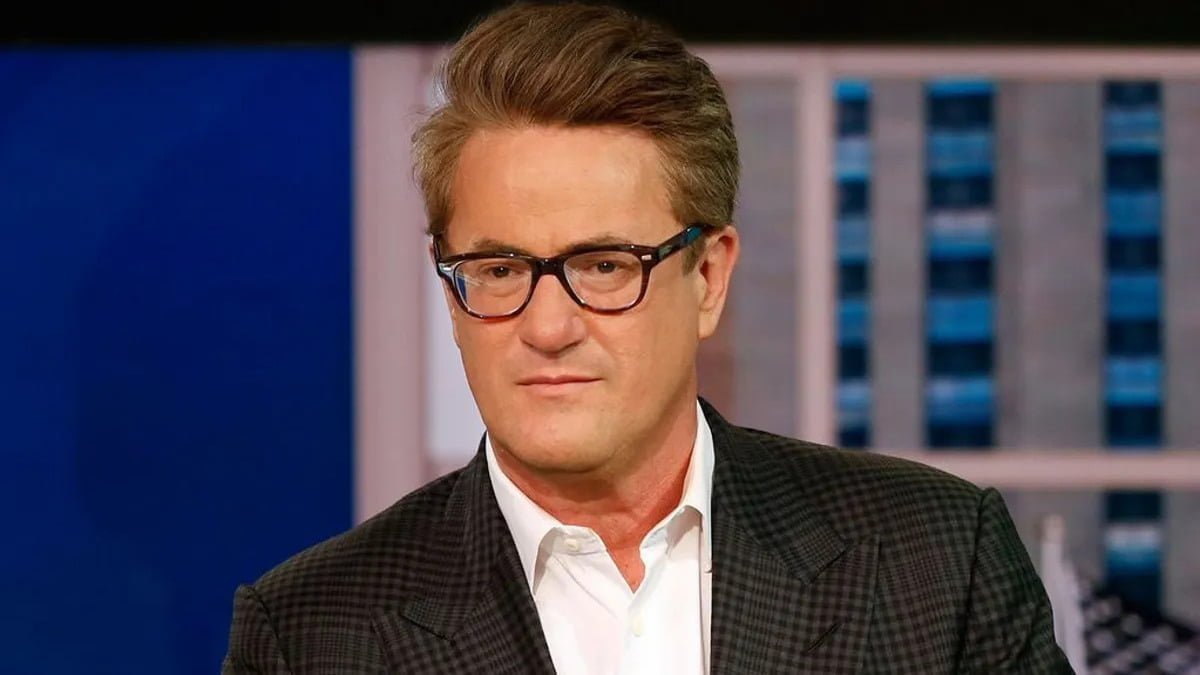Mark Twain said some people got it wrong about his death. If you’re one of the folks that are certain the Chicago Bears are leaving WBBM, you might end up with a Twain-esque egg on your face.
“I must tell you, WBBM losing the Bears is not official,” said Ron Gleason, director of news and programming at WBBM in Chicago. “I can understand some are concerned from an economic standpoint, but I don’t see how keeping the Bears on WBBM would be any economic loss.”
However, Gleason did say it would hurt if the Bears did leave the station.
“Not just me, I think it will hurt Jeff Joniak, Tom Thayer, who have been calling the games on this station for 22 years,” Gleason said. “This is my 22nd year with the Bears broadcast team, and it’s still the only thing I do on the air. Radio is ingrained in all our lives. Sure, it would be hard to take.”
While the Bears leaving WBBM is expected but not etched in stone, Gleason has in fact chiseled out his departure from the station and the business.
“I love what I do,” he said. “Radio is in my blood. I’ve known I wanted to be in radio since I was 12 years old.”
Gleason recently announced his retirement and will be stepping down in a little less than five months. He’s been with WBBM since November 2005, overseeing the station’s expansion from its AM-only signal on the 780 frequency to a simulcast with 105.9 FM in 2011. Radio Ink magazine has named him one of the nation’s top 10 program directors each of the last two years.
That’s the way to do it. Go out with a bang.
“One thing most people don’t understand is that when you’re in sports media, you’re working when everyone else is at leisure,” Gleason explained. “You work nights, weekends, holidays. I can’t tell you how many Thanksgivings, kids’ soccer games, family functions I’ve missed out on, but I wouldn’t trade back for the world.”
Gleason started covering sports while still a senior at Northwestern University.
“I was a 21-year-old kid who got season credentials to the White Sox, Bears, and Bulls. I had to take public transportation to and from the games. It was the ‘L’ train there or a bus back. We didn’t phone stuff in so I’d go back and cut up tape at the John Hancock building.”
Following his graduation from Northwestern, Gleason spent a year in Cheboygan, Michigan at WCBY-AM and FM.
“I did tons of high school play-by-play,” Gleason said. “I would call four games each weekend, two on Saturday and two on Sunday. I chose to do a lot of them solo as you got paid $15 bucks alone and only $10 if I worked with a color man. I figured I was working 90 hours a week trying to keep the players’ nicknames straight while sitting at the top of the high school stands in light rain, trying to spot the chains. It was quite an adventure.”
Gleason worked five and a half years at WJOL and WLLI in Joliet, Illinois, before he started his career as a sports reporter and anchor at WBBM. In 1988, he accepted a sports director position at WMAQ, where he also served as backup play-by-play announcer for White Sox baseball.
He stayed three years at WMAQ, until moving to the fledgling WSCR, The Score, as the station’s first director of sports and programming in 1991. At WSCR, Gleason oversaw the station’s launch from daytime-only to 24 hours, with two frequency changes and multiple ownerships.
“When I decided to join The Score, the frequency 830 AM was dark,” Gleason explained. “I agreed to join them as program director in July of that year, but they didn’t have a license at that point. It had been dark due to the previous owner having some FCC issues, but they cleared it up before the deal was consummated.”
WSCR went daytime on January 2nd. It was very different stuff. A lot of people were skeptical and thought it was going to be a ‘Mickey Mouse’ thing that would quickly fade.
“Ed Sherman, then the Chicago Tribune’s college football writer, was the first guest,” Gleason said. “He and Tom Shaer discussed the split national championship of Miami and the University of Washington. Chicago Mayor Richard M. Daley and football analyst John Madden called in later that day.”
WSCR was off to the races.
Gleason said he became aware of all-sports stations when there were about 30 around the country, outside of Chicago. He knew WFAN, and the changes they went through. Switching frequencies, then featured Don Imus. To whet his creative juices, he’d head home.
“I’d go to California and lay on the beach with my radio next to me,” Gleason said. “I used to listen to the Mighty 690 in San Diego, where Jim Rome was a local talk show host at the time. I listened to Lee ‘Hacksaw’ Hamilton and the San Diego Chargers. I didn’t listen much to morning radio. I listened to the original Monday Night Football with Howard Cosell, Frank Gifford. I gleaned a lot listening to them on the beach.”
Comfortable with the WSCR switch, Gleason absolutely knew the format would work.
“I had a good feeling of what we wanted to sound like,” Gleason said. “First, we wanted to be entertaining. Informational in the morning, but as the day went on we wanted to become more raucous. We felt we could bring in more than just sports. At the time our target audience was men 25-54. We could create a locker room environment with more sports talk.”
Most of the big hirings were made before Gleason arrived.
“I’d kept in touch, listened to a ton of cassette tapes. I knew the kind of people they were looking for.”
Tom Shaer and Dan MacNeil were onboard before Gleason got there.
“We had conversations with Brian Hanley, Dan Jiggetts. As we went along I’d put in my two cents. We had one major slot remaining in mid-December that was still a question mark. We’d talked to a number of people. I’d been listening to tapes for a month. There was a guy named Dan Vogel out of Milwaukee. Bruce Wolf was another guy I considered. I knew Wolf was going to be a great comedic talent, but he wasn’t an X’s and O’s kind of guy so he withdrew his name.”
You’re always looking for that intangible in a hire. At the same time, there are tangible needs.
“We definitely needed somebody who sounded like Chicago, who knew what they were talking about when it came to Chicago sports,” Gleason explained.
“Whoever we brought on had to understand the Chicago landscape, know all about the teams. Their strengths, their weaknesses. What they’d like to see happen with the teams or what they were already satisfied with.”
Longtime WSCR personality Mike North was an unforeseen find. North had a hotdog business near WXRT. Their employees would go there regularly for lunch and enjoy hearing Mike spout off about sports while serving hot dogs.
“They sold time to Mike North to do what at the time would have been considered a sports handicap show,” Gleason said. “At the time, gambling on games within Illinois wasn’t legal, but you could talk about it. Mike was interesting. I had put his tape on the stereo in my condo at the time. I was with my then-fiance, now wife, and had it on in the background. Suddenly she started laughing, and I asked what she was laughing about. She told me Mike was funny, entertaining. He was talking about sports and my fiance knew nothing about sports, but still enjoyed him. It was the personality she heard. We’ve been together for 30 years now and I learned she is an excellent consumer. There was a time she worked in international books rights for a company. She’d have to look at manuscripts to determine if they should be purchased.”
Gleason knew North was raw, but his instincts wouldn’t let him go. Gleason sat down with North and told him he’d like to bring him in as a weekend talk show host.
“He said he appreciated that, but he told me I should hire him for his weekday job. He’d say, ‘Here’s why you should hire me for that job.’
Other people we were looking at weren’t right. So, they put Mike North in there without a contract. They figured if he didn’t work, we could make a change.
We decided to pair him with Dan Jigggits and hear what they sounded like,” Gleason said. “Three days after starting on the air, I knew the Jiggetts and North show was gold. We knew after three days we had something special.”
The Monsters of the Midday show, is a twist on the popular Chicago moniker, ‘Monsters of the Midway.’
Gleason knew they had won the figurative lottery. The only problem was the radio numbers didn’t reflect their confidence in this new product. Back then, Gleason said they had a diary system for ratings. But it was delayed and a month behind the date. Two months in, Gleason said the station didn’t show up in the book.
“In the first quarter, we didn’t see much,’ Gleason said. “But we knew through January, February and March, we were lighting up the phones. Papers were writing everything about us. Conversations were generating gobs of conversation in the marketplace. The teams in the town were upset because they weren’t used to being criticized. We couldn’t understand why we weren’t showing up in the diaries, so we flew out to Laurel, Maryland. We found out a few things. It turned out Arbitron didn’t properly calculate the daytime numbers.”
Gleason said the ratings were incorrectly correlated from the 820 frequency, which was sold to Westinghouse.
“Right before we switched to 1160, we were number one in the 25-54 demographic. The radio industry was stunned. How was it possible for a daytime station to be number one in the target audience?”
Gleason had the distinct pleasure of working with Walter Payton.
“He was a playful guy, to the hilt,” Gleason said. “I would go and meet with him at his office to sign our contracts. We’d sit down with him and his associates. I reached out to shake his hand and he squeezed so hard it ached. Each ensuing time we met, I’d put out my hand to shake, then instinctively pull it back. I couldn’t go through that pain each time.”
Before going into management, Gleason covered the Bears from 1985-87 and saw the Bears players all the time.
“I went to the post-game press conferences in a tent under the seats in Soldier Field. It was freezing, the players would come out and talk. One time I dropped something and Walter bent over to pick it up and gave it to me.
That’s how nice he was. This is the same guy who in the locker room would walk by and pinch your butt.”
As a kid, Gleason worked full-time at night for Chicago’s Sportsphone.
“Boy, that goes way back,” He said. “I was one of the original full-timers. There was Les Grobstein during the day. I worked with Tom Green at night. It was unbelievable training. I’d give a 60-second recording with sports updates. There was no internet, so we were the sole source. Gamblers were looking for out-of-town scores, and the only way they could get them was by calling this place. It was really cool. We also covered teams, gathered sound.”
One of the reasons Gleason got into the business was Vin Scully. He grew up in Los Angeles and listened to him call Dodger games. He listened to Chick Hearn call games for the Lakers. Dick Enberg came out of Los Angeles, another Gleason favorite.
“I never met Vin Scully,” Gleason said. “I covered Dodger games once in a while but was a bit intimidated by him. You have to remember I was in awe of this man. I interviewed Chick Hearn for an old sportsline show on WBBM. It was a thrill because he was from Aurora, Illinois. I would listen to every single Dodger game on the air. I kept season statistics on my own, line by line. There was no other way to get that kind of information.”
Gleason is retiring, morphing from going full-throttle every day, to taking his foot off the accelerator completely. It could prove to be tricky.
“I’m a workaholic, busy 24-7. I’ve been in this particular role for 17 years. Sports is still a part of it. I wouldn’t say I’m scared of retirement, but I don’t want to be involved in business around the clock anymore. I’d like to keep my hands in it.
I want to be able to do what I want. I have a place in the desert in South Carolina. I also want to be able to turn something down by telling them, ‘I’m on a three-week vacation’.”
Bon Voyage

Jim Cryns writes features for Barrett News Media. He has spent time in radio as a reporter for WTMJ, and has served as an author and former writer for the Milwaukee Brewers. To touch base or pick up a copy of his new book: Talk To Me – Profiles on News Talkers and Media Leaders From Top 50 Markets, log on to Amazon or shoot Jim an email at jimcryns3_zhd@indeedemail.com.







